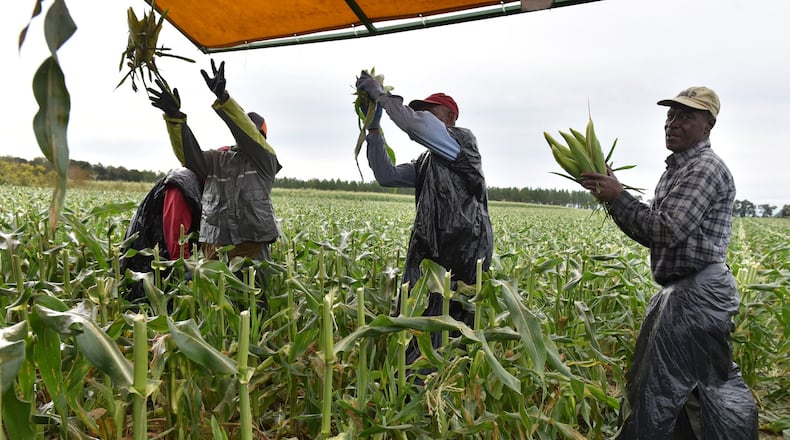Georgia farmland is among the most threatened in the nation according to a new report from the American Farmland Trust.
Between 2001 and 2016, about 544,000 acres of agricultural land in Georgia were developed or used for purposes other than farming or ranching, 195,000 acres of which are considered the best land for growing food and crops.
“We’ve all witnessed the impacts of empty grocery store shelves in recent months – we must be vigilant in protecting our farms and ensuring that our food system is more secure and resilient,” said Billy Van Pelt II, AFT senior director of external relations.
Georgia agriculture is a $9.6 billion dollar industry with just over 42,000 farms. The top products are poultry and eggs, hay, other field crops and cotton. One-third of Georgia farmers are new farmers (ten or fewer years) who generally operate farms that are smaller than average in both acres and sales.
Georgia ranks fifth behind states like Texas and North Carolina in the amount of lost farmland, the report said.
>> Read More: Women, beginning farmers emerge in U.S., state agriculture
The report comes just weeks before the general assembly could revisit a hotly debated farm bill (House Bill 545) when the 2020 session, suspended due to COVID-19, resumes in June. The bill would give landowners in agricultural zones who live within five miles of a farm two years instead of four to file lawsuits for nuisances such as noise, smells and runoff. The bill passed the Georgia House of Representatives but stalled before getting a full senate vote.
Sen. John Wilkinson (R-Toccoa), chair of the Agriculture and Consumer Affairs Committee who is running for the U.S. House of Representatives 9th District said in a recent virtual debate for candidates that he was confident the bill could pass during the 11 days remaining in the 2020 session.
The AFT report noted that while metro Atlanta was a hot spot for urban development, 68% of land developed during the time period measured was low density residential, a term used for development that includes single dwellings or large lot subdivisions sitting on acres of land.
That kind of land use, according to the AFT, makes it difficult for farmers to get to their fields or travel between fields. It also creates problems for farmers when new residents who are not used to living next to agricultural operations complain about farm equipment on roads or odors related to farming. In addition, as old farmers near retirement and sell their farms, more non-farmers are likely to acquire the land, making it harder for new farmers to find land, the AFT reports.
“What used to be farmland is being fragmented. That is happening all across the country but it is also pretty prevalent in the South,” said John Piotti, President and CEO of AFT. “As much as it hurts to see 100 acres on the edge of a city turn into housing, it is easier to justify.”
>> Related: COVID-19 sparks innovation among small farmers in Georgia
“It doesn’t matter if you are the owner of a mini estate, a maxi estate, a blueberry farmer…if you are living in rural Georgia, this rule would pit you against whoever is going to move in next to you,” said Gordon Rogers, executive director of Albany-based Flint Riverkeeper.
The bill, said Rogers, is designed to support large farming operations. State leaders should instead consider legislation that increases the attractiveness of deed restrictions and conservation easements. “That would go a long way in slowing this down,” he said.
AFT has set the goal of doubling the amount of permanently protected farmland over the next 20 years. In addition to expanding the reach of their Farm Legacy program which helps preserve farmland for generations, AFT said they will support state and federal policies and funding that helps retain and protect farmland. They also plan to launch a Southeast Regional Program to enhance their efforts in the region.
About the Author
Keep Reading
The Latest
Featured



